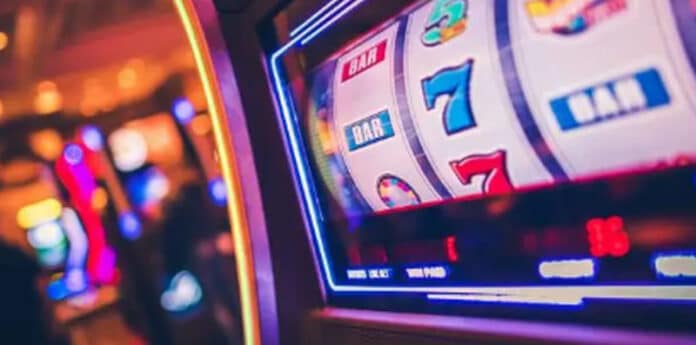Gambling has been a favorite pastime for centuries, and among its numerous forms, casino games like roulette and slot machines have gained immense popularity. Apart from providing entertainment, these games offer the allure of potentially winning big. However, understanding the probabilities associated with each game is vital to make informed decisions. In this article, we will delve into the world of roulette and slot machines, comparing the odds of winning to help you better comprehend your chances at the casino.
Roulette: The Wheel of Fortune
Roulette, known as the wheel of fortune, is a classic casino game that has captured the attention of gamblers for centuries. Its appeal lies in its elegant design and suspenseful gameplay. The objective of roulette is simple – players wager on where they believe a small ball will land on a spinning wheel divided into numbered compartments.
The Roulette Wheel
Before we analyze the probabilities, let’s understand the roulette wheel. In traditional roulette, there are two main variations – American and European. The American wheel comprises 38 pockets, including numbers 1-36, a single zero (0), and a double zero (00), while the European wheel contains 37 pockets, with the double zero absent. The layout of the numbers differs between the two variations, affecting the odds in the game.
Probabilities in Roulette
The odds are the same for roulette in land-based casinos, or an online casino usa.
Roulette offers players a variety of betting options, each with different probabilities of winning. Here are the most common types of roulette bets and their associated odds:
Single Number (Straight Up Bet): Betting on a single number offers the highest payout of 35 to 1. However, the probability of winning is low, with only 1 out of 38 (or 37 in European roulette) chances to win.
Even/Odd or Red/Black: These bets offer a 1:1 payout, doubling the original wager. The probability of winning is close to 50%, with slight variations due to the presence of the zero and double zero pockets. In European roulette, the house edge is 2.70%, while in American roulette, it jumps to 5.26% due to the additional double zero.
Dozens: Betting on one of the three dozens (1-12, 13-24, or 25-36) offers a 2 to 1 payout. The probability of winning is approximately 31.6% (12 out of 38 or 18 out of 37), varying according to the wheel version.
Columns: Similar to dozens, betting on one of the three columns (vertical lines) offers a 2 to 1 payout. The probability remains the same as for dozens, around 31.6%.
Outside Bets: These include low (1-18) or high (19-36) numbers, or combinations like odd/even or red/black. Outside bets offer a 1 to 1 payout and have probabilities similar to even/odd or red/black, close to 50%.
Slot Machines: The Reel Deal
Slot machines have become the face of modern casinos, attracting players with enticing lights, sounds, and the chance to hit the jackpot. Unlike roulette, which requires some level of decision-making, slot machines are entirely based on luck and offer a straightforward gameplay structure. Odds aren’t standardized, including with slots online. But online casinos often publish odds and payouts.
Types of Slot Machines
Before examining the probabilities of winning at slot machines, it’s essential to acknowledge the various types available in casinos. Classic slot machines contain three reels and usually offer one or a few paylines. Video slot machines feature five or more reels and can have numerous paylines, sometimes exceeding hundreds.
Probabilities in Slot Machines
Unlike roulette, determining the exact probabilities of winning at slot machines is complex. Modern machines employ intricate algorithms known as random number generators (RNGs) to ensure outcomes are genuinely random. The programming behind these machines ensures that every spin is independent and not influenced by previous spins or the player’s actions.
Return to Player (RTP)
Slot machines provide a statistical measure called the Return to Player (RTP), which represents the percentage of wagers a machine pays back over time. The higher the RTP, the better the chances of winning. Typically, RTP percentages for slot machines range from 92% to 98%.
Volatility: Another essential aspect of slot machines is volatility, also known as variance or risk level. Volatility refers to the frequency and magnitude of payouts. Low volatility machines offer frequent but smaller wins, while high volatility machines provide larger wins but less frequently. Choosing a volatility level that aligns with your playing style and bankroll is crucial.
Comparing the Odds
When comparing the probabilities of winning between roulette and slot machines, several factors come into play. As mentioned earlier, roulette offers a relatively higher probability of winning on outside bets (close to 50%) compared to slot machines.
However, it’s important to note that roulette also has some of the highest payout odds in the casino. Winning a straight-up bet can yield a massive 35 to 1 payout, far surpassing the potential winnings from most slot machines. On the other hand, slot machines may have lower odds of winning, but they often boast higher RTP, which means players have a higher overall chance of getting their money back in the long run.
Conclusion
Understanding the probabilities of winning in popular casino games like roulette and slot machines is essential before placing your hard-earned money at stake. While roulette offers a balanced mix of higher odds and significant potential payouts, slot machines provide a more diverse gameplay experience with the chance for long-term returns through higher RTP percentages. Ultimately, it’s up to personal preference and playing style to determine which game offers the most enjoyable gambling experience.
To get the best free roulette systems that really work, see the top 5 proven roulette systems and the video series below. It's the best 100% free information for winning roulette you'll find. It's written by professionals who are really earning a living from roulette.  |

